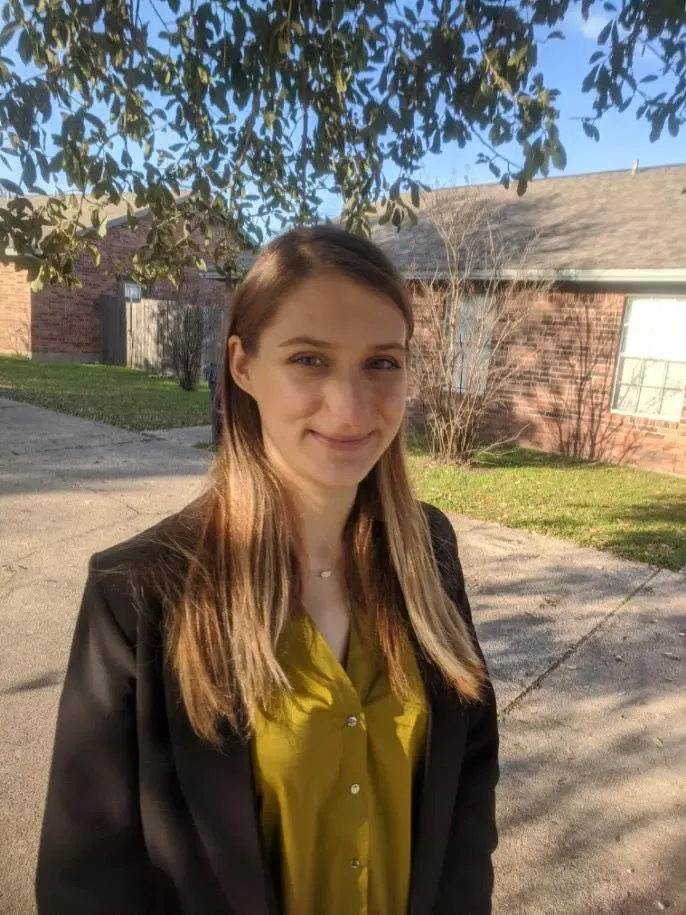Toxicology alumna Julia's PhD studies aim to reduce the use of animals in toxicity testing
Name: Julia Matyjasiak
Based: Brussels, Belgium
Year of graduation: 2024
Bergendorff scholarship holder in 2023
Current role: PhD student at Vrije Universiteit Brussel

What did you study as an undergraduate (bachelor)?
I studied Biotechnology, then switched tracks to Biochemistry because I was more into cells than microbes. I studied at the University of Surrey, in a small and picturesque English town. I went there to seek opportunities through their amazing placement program, which allowed me to travel to the US and work in an academic lab for one year of my studies. I worked with cells and carcinogens in vitro. That is how my history with Toxicology began.
Why did you choose the Master programme in Toxicology?
During my placement year, I was fortunate to work with a very esteemed toxicologist as my supervisor. I learned that despite the academic path not being the easiest, the excitement of being on the cusp of knowledge is worth the effort. I wanted to continue my studies further and sought out a Master programme in Europe. The Toxicology program at Karolinska Institutet was the best choice!
Where did you conduct your MSc thesis and what was it about?
My Masters thesis aimed to characterize the skin sensitizing potential of chemicals found in textiles. Although textile contact allergy is rare, it is still interesting to study especially in the context of textile recycling, as there is a potential of constant recirculation of toxic substances within the circular economy. Many of these chemicals are related to dye processes, and a team at Stockholm’s University is interested in their toxic properties, such as carcinogenicity and skin sensitisation. To help them, I completed in vitro experiments assessing skin sensitization properties at the Research Institutes of Sweden in Södertälje.
How did the Bergendorff summer internship support your research training?
The Bergendorff scholarship helped me embark further on my scientific journey, and I would not be as successful today if I was not allowed this opportunity. It helped me as a very junior researcher to understand the methodology, time management, self-organization and patience required to succeed in the lab.
Looking back on your time at KI and the Master programme in Toxicology, what is the most valuable thing that you learned?
Things are usually more complicated than they look. If you’re trying a new method in the lab, or starting a new project in your role, a lot of things may need to be ironed out first, even if it is a well-established method or everything seems simple at first glance. We are studying an immensely complex world of chemicals, which is amalgamated with the immensely complex world of biology and medicine, so be prepared for challenges. Every challenge is an opportunity to learn, but you have to stay grounded and persevere.
Where are you and what are you doing now?
Currently, I am doing my PhD at Vrije Universiteit Brussel. I am part of a large consortium of industry and academic partners, VICT3R, which aims to develop Virtual Control Groups to reduce the number of animals that are tested on, in alignment with the 3Rs. It is an extremely challenging and exciting endeavor, which I am very grateful to be part of. I am interested also in topics like AI and machine learning, liver toxicity and laboratory in vitro work, which I hope to discuss in my dissertation.
What made you decide on this career?
In my opinion, toxicology is one of the most important scientific fields when it comes to disease prevention and environmental protection. It plays an important role for everyone, because chemicals are all around us. Whether its in our pills or in our perfume, there is a lot more knowledge to be gained on the mechanisms of toxicity and how to study them to adequately safeguard our health and that of the planet. This challenge is what motivates me as a toxicologist.
